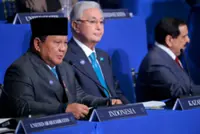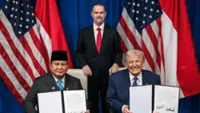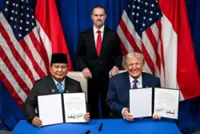Aeshnina Azzahra Aqilani is too young to vote in Indonesia’s elections this month, but that hasn’t stopped her from demanding the three presidential candidates adopt greener policies to combat the climate crisis.
Over the last six months, the 16-year-old student collected almost 1,000 letters, both online and at schools and colleges, from young people across her home province of East Java.





